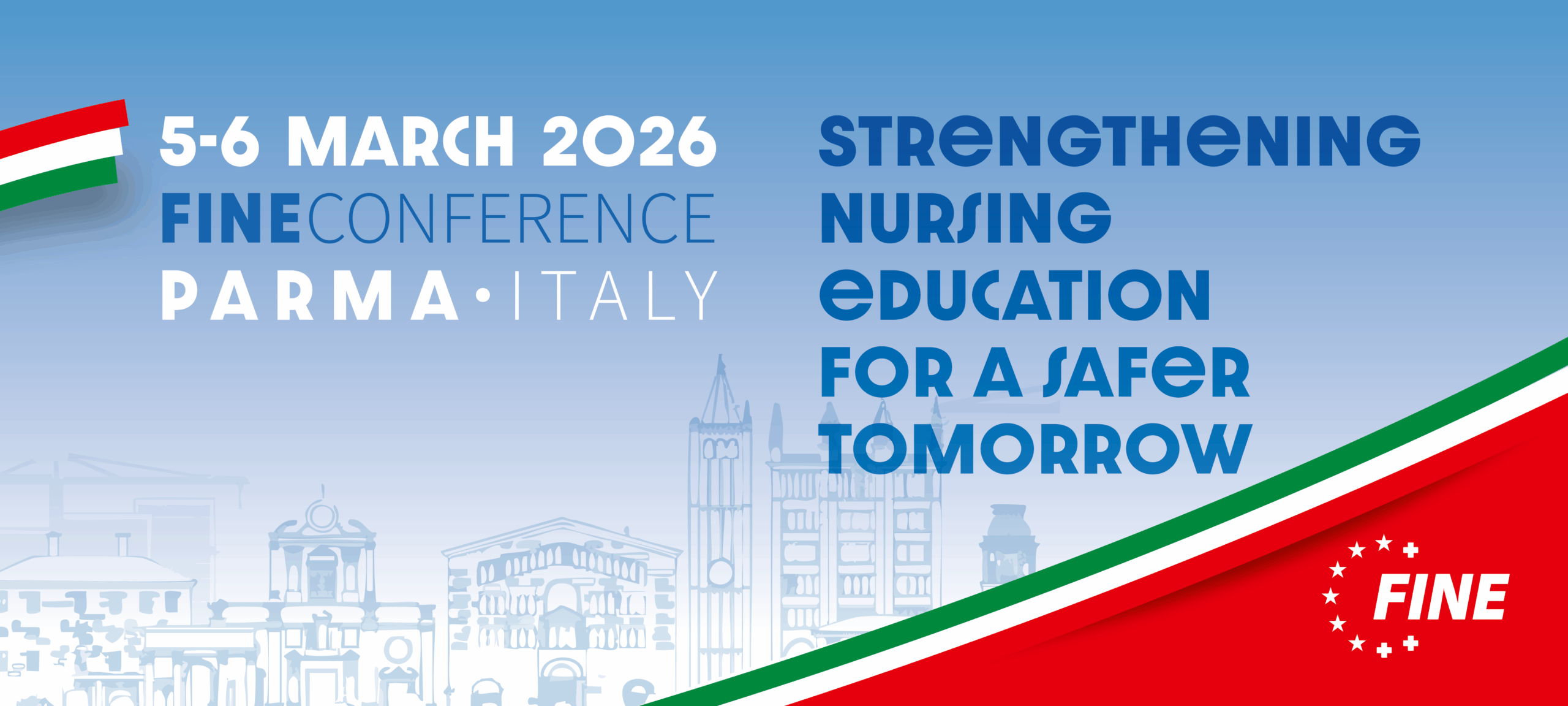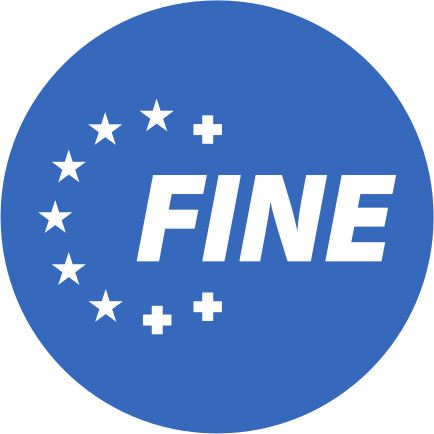

The deadline for submitting abstracts has now passed. We would like to thank everyone who responded to the call for papers.
We will review all submissions and publish the selection at the end of November.
- We welcome submissions on research findings, case studies and developmental projects on nursing education, for:
- Oral presentations (15 minutes)
- Workgroup/Symposium sessions (3 to 6 oral communications with a shared focus)
- Poster presentations (optional short oral presentation during a dedicated session)
- Fringe communications, such as art, drama, dance, poetry, music, videography, photography or song, etc. are welcome
Submission guidelines
We welcome abstract submissions for oral presentations, symposium sessions, and poster presentations.
Abstracts should be structured and include the following sections with these subheadings in bold:
- Title: Concise and descriptive of the project or study.
- Authors: Full names and institutional affiliations.
- Introduction
- Aim
- Material and methods
- Results and conclusions
- 3-5 keywords
Each abstract must:
- Be submitted online by October 31st 2025 via the FINE official Submission Page. Abstracts submitted by email will not be accepted.
- Be written in English, Italian, or French. UK or US spelling is permitted but you should be consistent throughout your text.
- Contain a maximum of 300 words, excluding references, and 3–5 keywords
- No tables or figures.
- Be original in content and respectful of copyright regulations.
- All sections of the online abstract submission system must be completed. Incomplete abstracts will not be considered for review.
- The abstract text, including the title, must not contain any information about the presenters or the institutions involved, this is to facilitate the blind review process.
- Authors can select their preferred presentation type, however the decision of the scientific committee will be final.
- The presenting author of an accepted abstract (or at least one of the authors) must register to attend the congress, before the 5 of December.
- Be aligned with one of the conference themes listed below.
All submissions will be peer-reviewed by experts.
Notification of acceptance : 30 of November 2025
Themes to choose from
1. Governance, leadership, and professional identity in nursing education
This theme brings together issues related to the visibility, influence, and professional development of nurse educators. It welcomes abstracts on the strategic role of educators in shaping healthcare and education policy, sustainability, leading change, and strengthening the recognition of the nursing profession. Contributions may also explore nurse educator development, career pathways, mentoring, educator well-being, resilience, and the development of a strong professional identity.
Subtopics include:
-
- Health and education policy development
- Nursing leadership and advocacy
- Visibility and recognition of the nursing profession
- Educator competencies and teaching frameworks
- Nurse educator development and mentoring programmes
- Professional identity, resilience, and mental health in educational roles
2. Curriculum design, quality, and pedagogical innovation
This theme focuses on the design, accreditation, and quality assurance of nursing curricula, as well as evidence-informed and innovative teaching strategies. Submissions may address programme design aligned with European frameworks, student mobility, assessment tools, simulation, digital technologies including artificial intelligence, nurse education in challenging contexts including natural disasters, war and conflict, and the integration of research into education.
Subtopics include:
-
- Programme structure, accreditation, and coherence
- European quality frameworks and student mobility
- Graduate-entry and second-degree programmes and recognition of prior education and experience
- Specialist and Advance Practice Nurse preparation
- Active learning and case-based learning
- Simulation and digital teaching tools
- Evidence-based education and research-informed teaching
- Assessment strategies and curriculum evaluation
3. Interprofessional education and transversal competencies
This theme explores collaborative learning across health disciplines and the development of key transversal competencies. Abstracts may focus on joint curricula, interprofessional education, teamwork, communication, ethical reasoning, and shared decision-making. It promotes initiatives that foster mutual understanding and collaborative practice in complex care environments.
Subtopics include:
-
- Shared curricula and interprofessional learning
- Communication, ethics, and decision-making in care teams
- Collaboration across health professions
- Educational strategies for teamwork and mutual understanding
- Integrated approaches to teaching transversal skills
4. Humanistic, cultural, and psycho-spiritual dimensions of teaching and learning
This theme highlights the relational, ethical, and emotional aspects of nursing education. It encourages contributions on teaching empathy, compassion, and cultural competence, as well as on pedagogies that foster reflective practice, emotional intelligence, and person-centered care.
Subtopics include:
-
- Teaching empathy, ethics, and compassion
- Reflective practice and different types of intelligence (cognitive, emotional, spiritual)
- Cultural humility and diversity in education
- Person-centered approaches in teaching and care
- Educator training in relational and psycho-spiritual competencies
Benefits of participation
- Present your research to a global audience of nursing educators
- Network with peers, experts, and leaders in nurse education
- Gain access to the latest research, innovations, and best practices in nursing education
- Have your abstract published in the conference proceedings with an ISBN
Committees
1. Scientific Committee
- Antonio Bonacaro (Italy), FINE Executive Board, Chair of the scientific committee
- Maria Cassar (Malta), FINE Vice-president, Vice chair of the scientific committee
- Dimitris Theofanidis (Greece), FINE Executive Board
- Helga Bragadóttir (Iceland), FINE Executive Board
- Jean-Francois Jézégou (France), FINE Executive Board
- Mirko Prosen (Slovenia), FINE Executive Board
- Olivier Morenon (Switzerland), FINE Executive Board
- Sara Pinto (Portugal), FINE Executive Board
- Cécile DURY (Belgium), FINE President
- Mauro Parozzi (Italy), Senior Research Fellow in Nursing
- Massimo Guasconi (Italy), Lecturer in Nursing
- Fabio Mozzarelli (Italy), Lecturer in Nursing
- Pilar Fuster Linares (Spain), Universitat Internacional de Catalunya
- Encarna Rodríguez Higueras (Spain), Universitat Internacional de Catalunya
2. Organisational Committee
- Cécile DURY (Belgium), FINE President (Chair)
- Antonio Bonacaro (Italy), Associate Professor in Nursing, FINE Executive Board Member (Co-chair)
- Maria Cassar (Malta), FINE Vice-president
- Jean-Francois Jézégou (France), FINE Executive Board Member
- Olivier Morenon (Switzerland), FINE Executive Board Member
- Rosangela De Simone (Italy), Research Fellow in Nursing
- Elisa La Malfa (Italy), Research Fellow in Nursing
- Maria Bertuol (Italy), Research Fellow in Nursing
- Giuseppe De Stefano (Italy), Research Fellow in Nursing
- Pilar Fuster Linares (Spain), Universitat Internacional de Catalunya
- Encarna Rodríguez Higueras (Spain), Universitat Internacional de Catalunya

